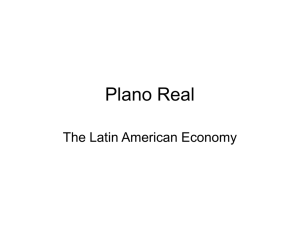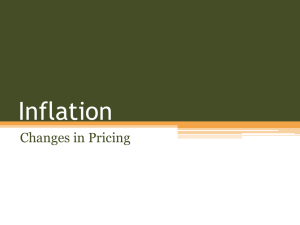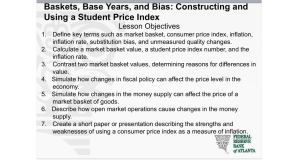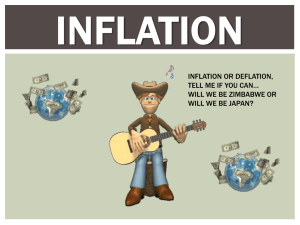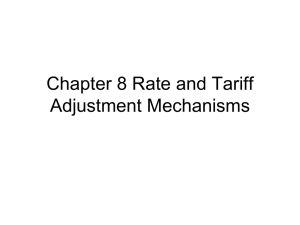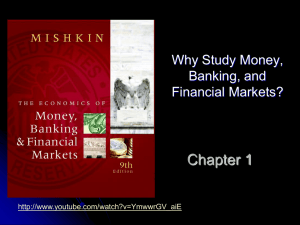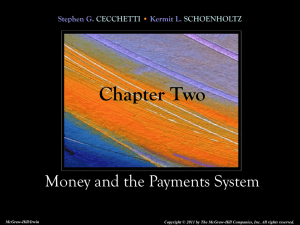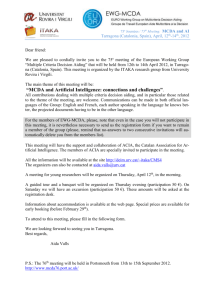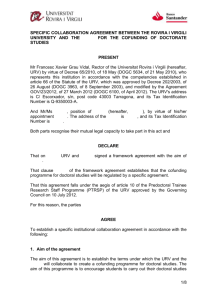13-Real
advertisement
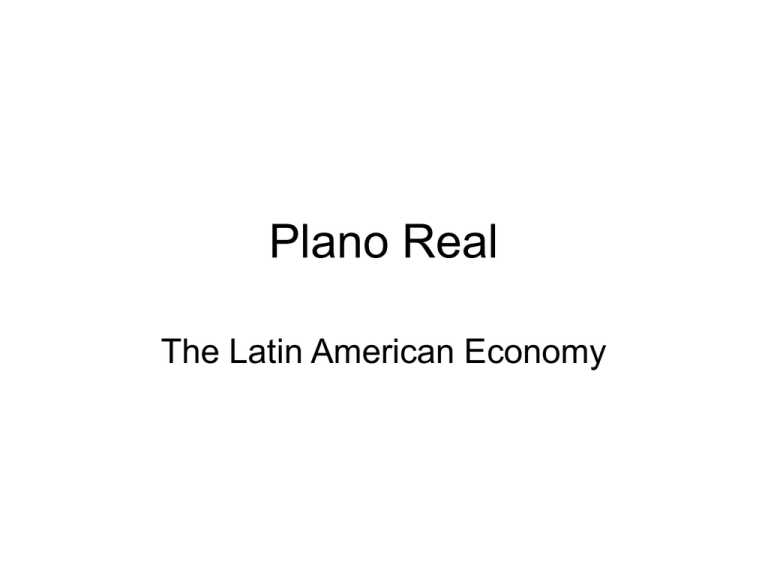
Plano Real The Latin American Economy Based partially on “Avoiding some costs of inflation and crawling toward hyperinflation: The case of the Brazilian domestic currency substitute by Márcio Garcia.” Classical Hyperinflation “The pattern of a classical hyperinflation is an acute acceleration of the inflation level accompanied by rapid substitution away from domestic currency.” – Márcio Garcia. * Classical hyperinflation = acute acceleration of inflation rates until reaching extremely high levels followed by rapid substitution away from domestic currency (e.g. dollarization). Monthly Inflation Brazil • This shows that despite high levels of inflation (even Hyperinflation as defined by certain authors) before plano Real, Brazilian inflation was not killed and did not show classical (explosive) hyperinflation. • Next table also shows that Brazil exhibited surprised economic resilience to high levels of inflations Brazil: Real GDP growth and Inflation • Why Brazil did not face hyperinflation? • Was there something different from other economies facing similar problems? • Yes. Two key elements played a role differentiating Brazil from the classical hyperinflation experience: (1) Indexation (2) Provision of a domestic currency substitute (i.e. interest paying asset with near money liquidity). This second element was the main source of Brazilian central bank inability to fight inflation and the unwillingness of Brazilians to face the costs of such a fight. The provision of domestic currency substitute helps explain (on political aspects) why fighting inflation was not a priority. Those with access also had more political access. Main reasons to Brazilian Hyperinflation 1. Fiscal Imbalances Sizable fiscal deficits were created (conflict of federalism between dictatorship and democracy) 2. Indexation Brazil had a strong indexation scheme, prices, wages, taxes, exchange rate, public and private debt,… Indexation made inflation expectation backward looking and increased substantially the sacrifice ratio Strategies to Fight Inflation 1. Wage and prices freezes (Cruzado Plan) 2. Set exchange rate, public sector prices and oligopolistic sector prices to a slowly decline path (Delfim Plan) – Both heterodox plans 3. Monetary Reform (budget balance, etc) Real Plan • Real Plan started at 1993 and it was divided in three stages: 1. Budget balancing – 3 months of negotiation 2. Introduction of URV - 4 months 3. New currency implementation - Real Budget Balancing • Budget balancing before the introduction of the new currency – showing that government could put in practice its budget expenses without seignorage • Government kept with many reforms after the real – privatization of SOE, privatization of State Banks, trade liberalization… • Tight monetary policy URV • URV - unit of real value (or Unidade Real de Valor) • Domestic unit of account with a virtual exchange rate 1 URV ~ 1 dollar • The URV would be adjusted daily by the Central Bank to keep its real value (adjust to compensate inflation) URV • All prices and contracts were slowly converted to multiples of URVs • Once all contracts were converted to URV the government would start issuing a new currency: the real • The goal of the URV was to index completely the Brazilian economy to the URV: keep relative prices stable – Worked as a Nominal anchor. Why not simple adopt a nominal anchor right way? • Brazilian economy was highly indexed, however different contracts had different periodic adjustment clauses – It would create dispersion of relative real prices with some prices that were recently adjusted higher than others Why not simple adopt a nominal anchor right way? • Sudden stops of inflation (as done during Cruzado Plan) would have such problem: some prices at the peak and others at the bottom --> generating inflation pressure • This is an important component of the inertia behind Brazilian inflation – URV allowed prices to be fully aligned (during 4 months), avoiding the problems of sudden stop 1 Real = 2750 Cruzeiros Reais REAL • 1 month noticed was given previous to the monetary conversion rate (1 URV=1 real) • After four months the government launched the new currency real • The value of 1 real would not be allowed to cost more than one dollar (upper bar in the exchange rate) • Once the exchange rate reach close to 1 real = 1 dollar, the CB committed to sell dollars • All the contract that were set in real term at URV became fixed in nominal terms real Plano Cruzado • Drastic measures against inflation • New currency • Annual adjust of rents and mortgages • Prices will be frozen News at the time: • “Start the war Real X Inflation” • It was word cup time (We won ), Maradonna was caught on drugs Why the plano real was successful while others failed? Why the plano real was successful while others failed? • We won the 1994 World Cup! – Not really. Why the plano real was successful while others failed? • We won the 1994 World Cup! – Not really. But it can be argued it played a role. Why the plano real was successful while others failed? • Series of reforms: – Contractionary fiscal and monetary policies, increased interest rates (increasing foreign reserves) – Strong focus on balance of payments Annually Inflation and Money Supply Growth
